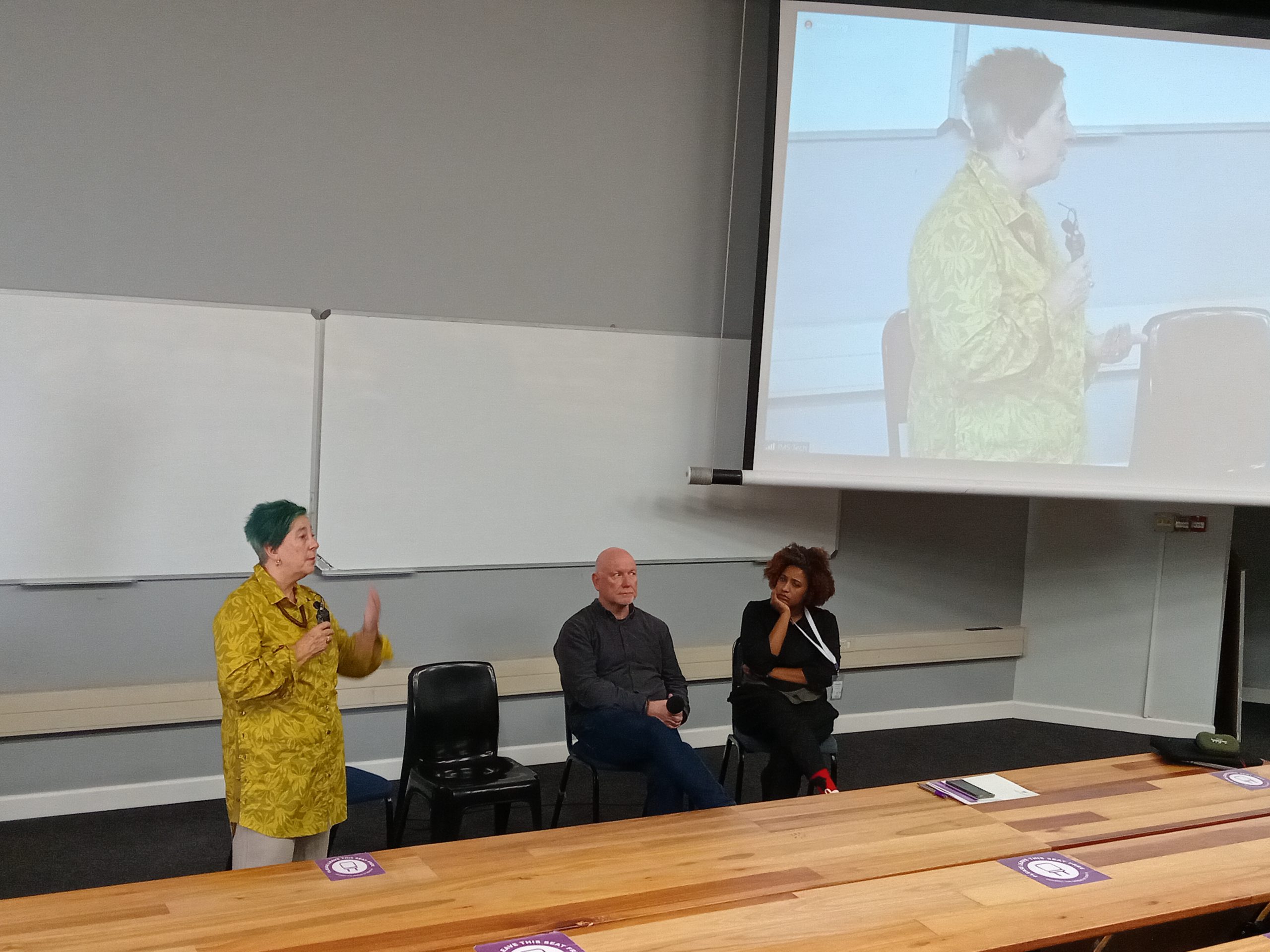By Kungawo Ralo and Thina Stamper
Day 2 of the journalism summit was held at the Bioscience building of Rhodes University on Friday, 5 April. The summit aimed to discuss and elaborate on different issues dealt with in journalism. On the day, the summit was convened by Professor Anthea Garman, and she was joined by various guest speakers from other parts of the country who contributed significantly to the discussion.
During the debate, journalists raised issues they grappled with in their profession. In the heart of journalism, stories of violence, abuse, and tragedy persist, challenging reporters to navigate with craft and personal resilience.
Trauma heightens ethical stakes, shaping the very fabric of news reporting- demonstrating a profession inherently facing trauma. The future of journalism seems uncertain, with economic challenges and a flood of information to navigate, the summit heard. Journalists must grapple with ethical questions, sorting fact from fiction to speak truthfully about people’s lives in a world of misinformation.
Charting a course: Regulating and funding futures in the Media
Other topics that emerged from the discussion included public interest and what it means in media, independent education, and the sustainability of media funding models. Media practitioners illustrated a need for multiple approaches to funding sources in the media industry.
Another conversation for the day included navigation, regulation, and monitoring of converged media and its distribution on online platforms.
During the discussion, it was suggested that these platforms intervene in the self-regulatory bodies and pay levies to them. In the era of conversions, the summit needs to imagine a new regulatory system. In data and transparency, there’s a need for algorithms to be transparent and for related news to be shared. Publishers need access to that data content to promote optimised content.
Additionally, more research needs to be done about the online media space. For example, a research institution could be developed to support research about the media, its online migration, and how we access further understanding how media operate online spaces. Last but not least was the Media Platform Governance literacy and education on how social media platforms work.


